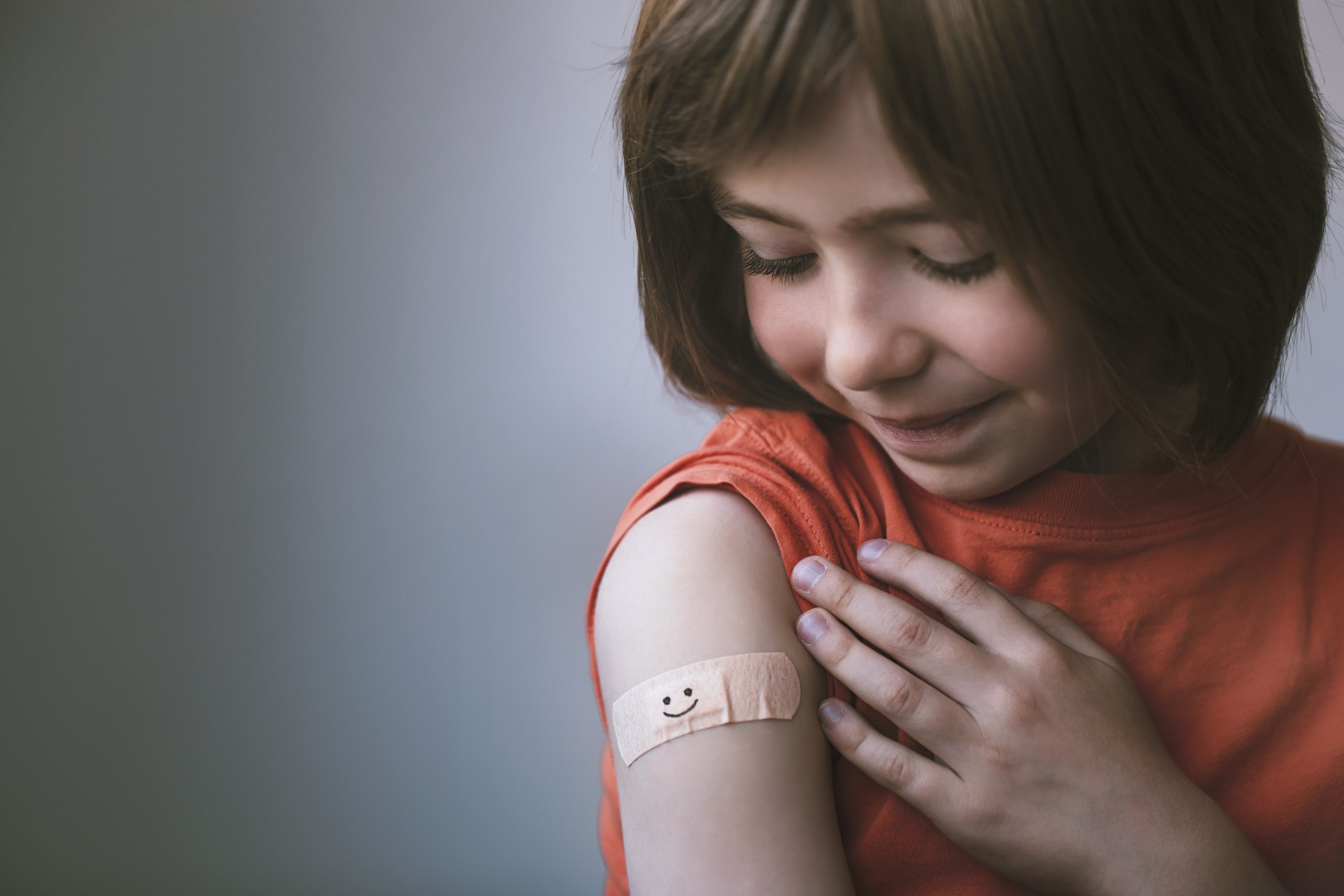Stay well and healthy: Get caught up on all your recommended vaccines
Back-to-school is a time for new beginnings and fresh perspectives. Parents stuff backpacks with school supplies in the hopes that their children will stay strong and confident for the year ahead. One of the many challenges parents anticipate, especially with so many kids gathered indoors, is the spread of illness that tends to occur once kids return to the classroom. Continue reading for more insight from Dr. Jim Hellinger, Medical Director at Mass General Brigham Health Plan and Infectious Disease Specialist.
With August being National Immunization Awareness Month, the American Association of Immunologists (AAI) strongly recommends that adults and children are current on their regular immunizations. Dr. Hellinger adds, “Your immune system is a network of cells and organs throughout your body that protects you from infections and disease. A healthy immune system defeats invading micro-organisms such as viruses and bacteria and protects your healthy tissue.”
He continues, “It does so by keeping a record of every germ it’s ever faced to respond quickly should you ever be exposed again. Vaccinations prompt a similar protective response.” Dr. Hellinger encourages everyone to use this time to talk with their provider about the vaccination schedule that’s right for them and their families.
Three reasons to get your kids vaccinated before school starts:
- Reduces their risk of illness. Fully vaccinated kids are at a much lower risk of missing school due to COVID-19 or other illnesses. This means less time away from learning, friendships, sports, and other activities.
- Prevents severe infections. Vaccines are proven safe and effective at preventing severe infections, hospitalizations, and deaths. The more people vaccinated, the less likely your kids or someone in the neighborhood or family will get a more serious case.
- Helps with community protection. Vaccinating children contributes to overall community protection. When a significant portion of the population is vaccinated, it helps control the spread of the virus and reduces the risk for everyone, including vulnerable children.
“A fourth reason is that vaccination is safer than the alternative, getting sick,” Dr. Hellinger said. “As with COVID-19, influenza, and whooping cough (pertussis), vaccination is much preferred to you or your family getting sick. Many consider their own good health robust enough to fight off a natural infection, others may have more serious infections. As we’ve seen with COVID-19 and influenza, some natural infections can be devastating, and possibly more serious for your loved ones than for you. Yes, there may be mild side effects, but vaccines are safe and effective, with a long-term track record of success.”
What is my recommended vaccination schedule?
- Vaccine schedule for children: The CDC’s child vaccine assessment tool makes it easy to learn which vaccines your child may need.
- Vaccine schedule for adults: Use the CDC’s adult vaccine assessment toolto see which vaccines might be right for you.
What is natural and herd immunity?
- Natural immunity is protection against an infection from which you have recovered.
- Herd immunity is the protection afforded to you by living among individuals immune to that infection, either through natural or vaccine-acquired immunity from infection.
Top questions people have about vaccines
How do we know that vaccines are safe?
Before the Food and Drug Administration (FDA) considers a new vaccine for approval, preclinical and clinical studies are conducted to determine safety, effectiveness, and dosage. Vaccine trials must involve more participants than standard drug clinical trials because vaccines are intended for the entire population. Once a vaccine reaches the FDA approval phase, it is again evaluated for safety, effectiveness, and consistency of batch purity and potency.
Why is it so important to get regular immunizations, especially for children?
The human immune system is very complex. The result can be disease or illness when it isn't working properly. Many people think that natural or herd immunity will keep them safe or that many diseases we immunize don’t exist anymore. But that’s not true. First, diseases like polio or measles are rare because generations of people were immunized against them. However, outbreaks occur worldwide, and today, exposure can happen with so many people able to travel frequently. Second, getting immunized protects you and those around you by limiting the spread of disease. The more vaccinated people, the less likely a major outbreak will occur. Immunization is key to creating herd immunity. Lastly, vaccination is much safer than developing natural immunity from disease because some diseases can have lasting, damaging effects on your body—which can be avoided entirely by getting vaccinated instead.
How do vaccines protect us?
Another myth about vaccines is that they make you sick, overload your immune system, or can even cause autism in children. None of this is true. Vaccines help our immune systems fight infection faster and more effectively. Vaccines are made of very small pieces of germs, which generate a protective immune response but don’t make you sick. Some people can experience mild side effects from some vaccines, such as soreness at the injection site, but these pass quickly. When you get a vaccine, it trains your body to recognize disease-causing germs and fight them off.
Stay connected with Mass General Brigham Health Plan by following @MGBHealthPlan on Instagram, LinkedIn, and Facebook.
